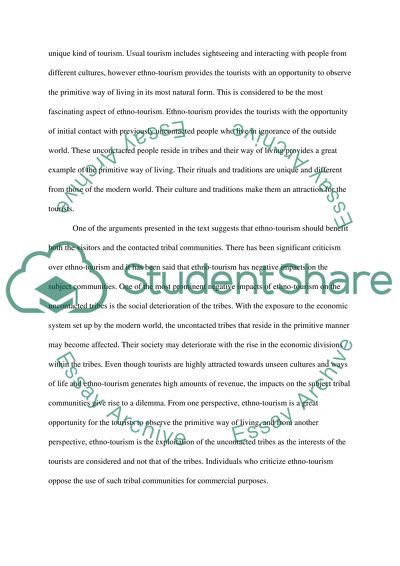Cite this document
(The Ethno-Tourism Industry Report Example | Topics and Well Written Essays - 1500 words, n.d.)
The Ethno-Tourism Industry Report Example | Topics and Well Written Essays - 1500 words. https://studentshare.org/tourism/1454417-ethno-tourism
The Ethno-Tourism Industry Report Example | Topics and Well Written Essays - 1500 words. https://studentshare.org/tourism/1454417-ethno-tourism
(The Ethno-Tourism Industry Report Example | Topics and Well Written Essays - 1500 Words)
The Ethno-Tourism Industry Report Example | Topics and Well Written Essays - 1500 Words. https://studentshare.org/tourism/1454417-ethno-tourism.
The Ethno-Tourism Industry Report Example | Topics and Well Written Essays - 1500 Words. https://studentshare.org/tourism/1454417-ethno-tourism.
“The Ethno-Tourism Industry Report Example | Topics and Well Written Essays - 1500 Words”. https://studentshare.org/tourism/1454417-ethno-tourism.


